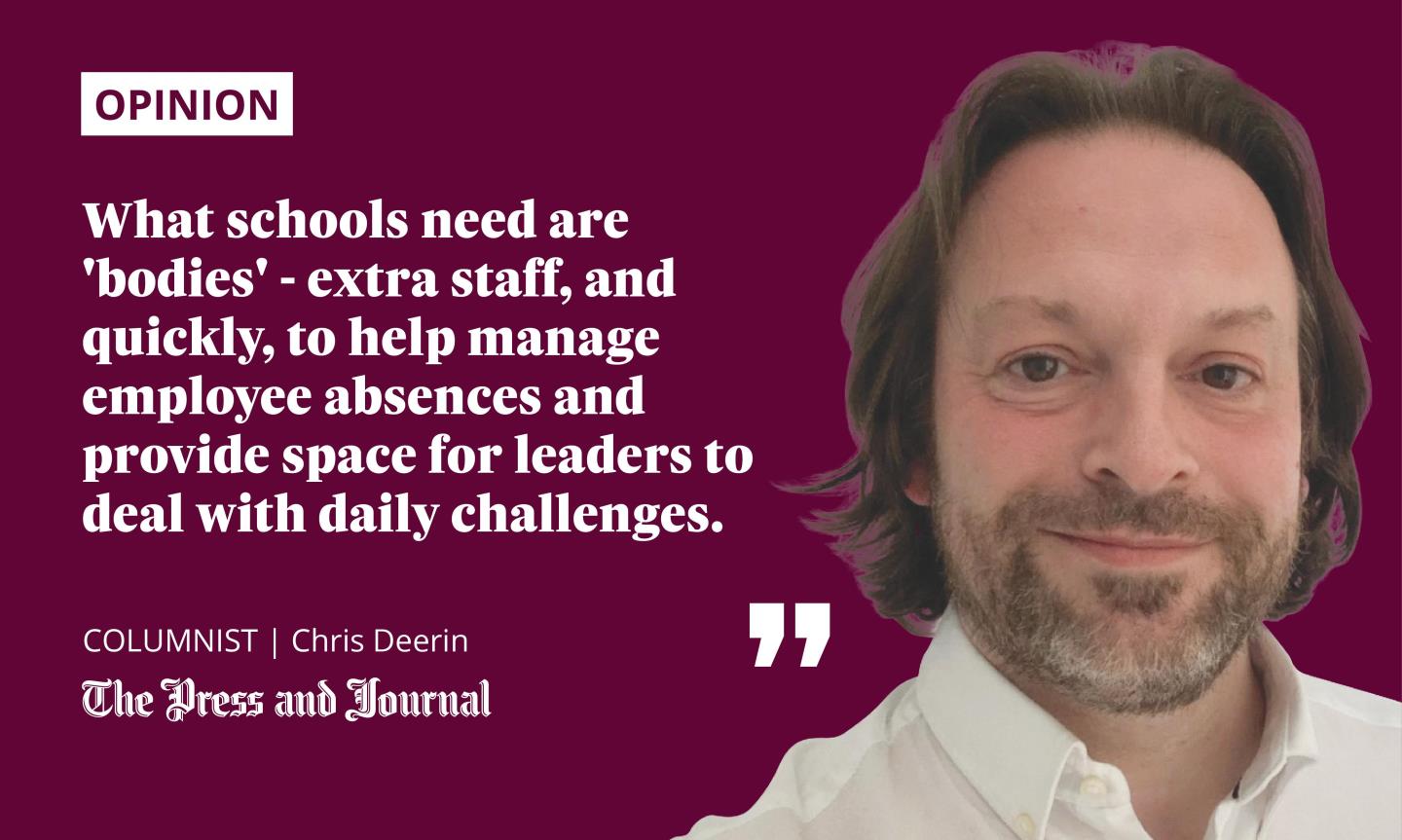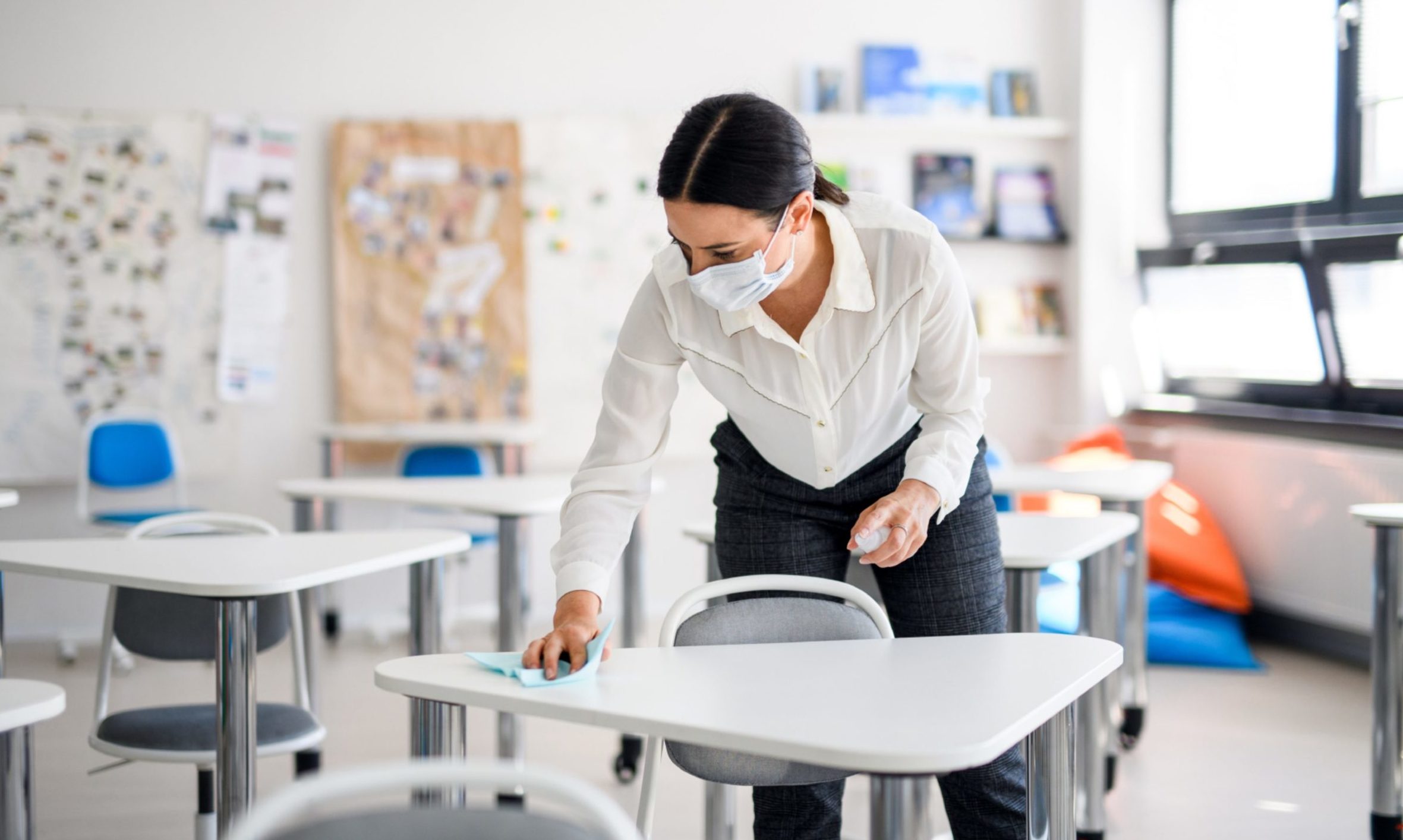Desperate times require desperate measures, and be in no doubt that these are the worst of times in the nation’s schools.
The Covid crisis has led Nadhim Zahawi, the English education secretary, to ask teachers who have retired or changed career to return to the classroom in January to ease what is fast becoming an unbearable burden on their former colleagues.
Scottish ministers haven’t done anything like this yet, but they need to, and teaching unions, if they care for the wellbeing of their members, should support the idea. Many of our schools are in a fraying and dangerously weakened state, facing high and disruptive absence rates among both staff and pupils, slumping academic standards, poor discipline and concentration levels among children, grave mental health issues, and what seems like a shameful lack of support and understanding from the centre.

A headteacher – who I know to be dedicated, smart and passionate – wrote to me recently to outline the scale of the challenge faced on a daily and weekly basis. It did not make for easy reading. I’d like to share as much of it with you as space permits.
“The past 27 months have been the most stressful time I have ever had as a headteacher or indeed working in education,” she says. She is in school from 7am ’til 7pm, five days a week, unable to take breaks due to covering playground supervision, or dealing with incidents from the playground or in class, or responding to communications from parents and carers. She also regularly works through weekends. The school’s senior leadership team (SLT) is constantly filling in for staff absence, meaning it can’t perform its usual role properly.
Meanwhile, she admits, parents and carers feel “a massive sense of disconnect” due to not being able to come into the school. Staff morale is very low and teachers feel isolated, leading to “very negative feelings” towards the SLT. In attempting to innovate and restructure in order to cope with the crisis, it has been “very hard to get the balance between making informed decisions for the greater good and having collegiate discussions without creating anxiety for staff”.
Teachers, pupils and parents are struggling
The head must seek to unify teachers who have very different characters and capabilities. “Some of them find change hard to manage and this has meant a lot of backlash, with the added complication that those staff who are keen to push forward and find solutions feel they are being held back – this leads to factions within the staff.”
Her teachers are struggling to manage the overwhelming demands of the job while also being there for their own families. “I have had a number come to me in floods of tears, feeling they are drowning and not coping, not managing to get it right for the children or their families,” she says.
In the classroom, pupils’ behaviours have become “heightened”, particularly among those with additional support needs. There is an increasing percentage of children who are “not on track” academically, leading to pressure from parents and the authorities. Teachers feel they are “failing” their charges, compounding the stress they are under.
The headteacher tries to stay in regular contact with parents, but many of them see the problems without necessarily understanding the strains. “Disgruntled parents make bold statements about how the school has gone downhill over the past couple of years and that they wouldn’t recommend anyone to come here,” she says.
Teachers find ‘the fun has been taken out of teaching and that they are just going through the motions with everything else they feel they are having to content with’
Meanwhile, she and other heads are constantly juggling guidance from the government and education authorities around equity, inclusion, poverty awareness, mandatory training, diversity and “decolonising the curriculum”. There has been little let-up.
Schools need more support
One consequence of all this is that teachers find “the fun has been taken out of teaching and that they are just going through the motions with everything else they feel they are having to content with”.
“I have never been more exhausted mentally,” she says. “This has made clear decision-making really challenging. My friends and my husband are worried about me – I look exhausted and have lost weight, and hardly see anyone outside school due to the amount of work I am having to put in.”
What schools need are “bodies”, she says – extra staff, and quickly, to help manage employee absences and provide space for leaders like her to deal with the daily challenges linked to Covid, on top of the general issues that come up during a “normal” school day.
“We just put our heads down and plough on through,” she finishes. “I, along with my staff, are literally just going from day to day, making it to the end of the week, in the hope that we are making a positive difference.”
They, and our children, surely deserve better.
Chris Deerin is a leading journalist and commentator who heads independent, non-party think tank, Reform Scotland



